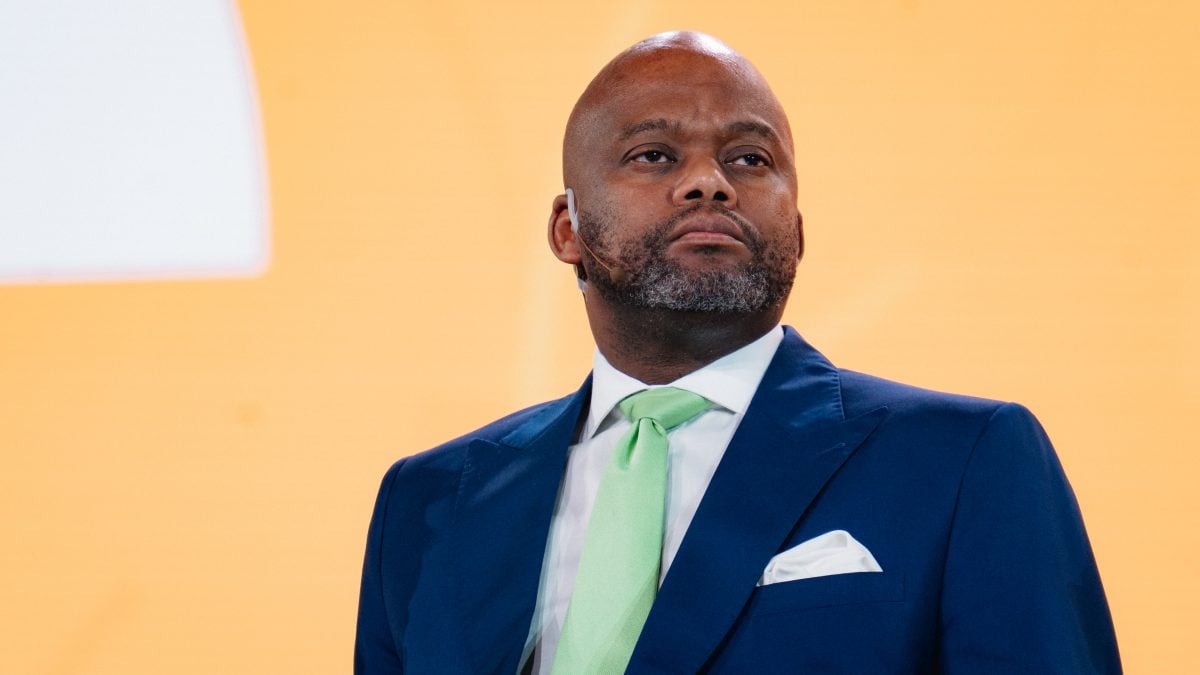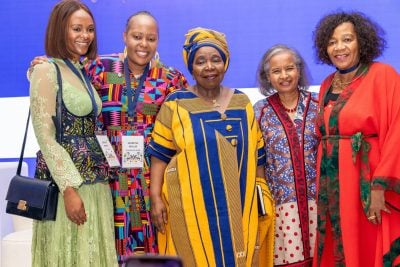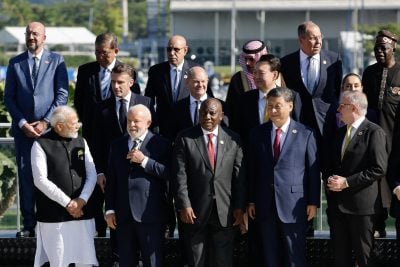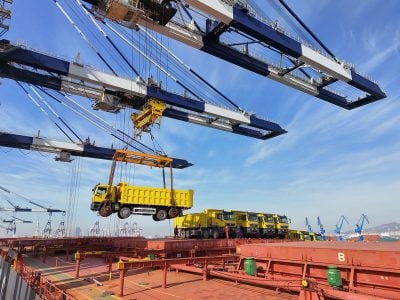Trade diversification is at the heart of responses to global volatility and uncertainty, with countries looking for ways to reduce their reliance on certain trade partners and build more ties with new ones as a risk management strategy.
African countries are among them, but they are also under pressure to add more value to their commodities in order to tap into global value chains, generate more value and create jobs.
Regional value chains make up less than 3% of Africa’s participation in global value chains, according to Afreximbank. But this is starting to change as countries are increasingly facing the reality that they need to become more self-sufficient in an uncertain world, and some governments are driving local processing as a policy priority.
There are aspirations, particularly in the minerals sector, to build refineries and processing capacity. Realistically, many countries do not have the basics in place for such developments, with infrastructure and power deficits, for example, being quite common across the continent.
Funding and policy are not always optimal either, but a notable success story is the Dangote Refinery in Nigeria, designed to supply refined petroleum products domestically and for export.
While the cost of building it has been exorbitant, it is now realising its true value by generating valuable foreign exchange from exports on the one hand and saving foreign currency by reducing Nigeria’s dependence on imported fuel on the other.
AfCFTA’s focus on value addition
At the lower end of the scale, agroprocessing is transforming agricultural produce for export, which can add up to 40% to the value of local crops. And there are other initiatives under way in the energy and other sectors.
Wamkele Mene, Secretary General of the African Continental Free Trade (AfCFTA) Secretariat, says a large part of its mandate, and that of the African Union, is to focus on value addition and transforming raw materials into finished products.
He told a panel at the B20 in Johannesburg that mobilising capital to this end is paramount, calling on development finance institutions to step up.
“We have begun to see a positive change in this direction and that is good news. An example is the special economic zone between the DRC and Zambia, which will be focusing on value addition to lithium to make batteries for electric vehicles.
“Significant investment has been made by Afreximbank to support this transformative process that will not only create jobs for the region but also position Africa as a centre for value addition for electric vehicles.”
Unlocking $100bn investment for green industrialisation
“We have recently launched the Africa Green Industrialisation Initiative, which is being led by President William Ruto (of Kenya). We have brought together our development finance institutions and commercial banks to establish a platform for identifying bankable green industrialisation projects as well as bankable projects to transform critical minerals.”
He said through the initiative, a commitment had been made to unlock $100bn worth of investment directed at green industrial development and infrastructure as well as green trade.
Another example of value addition is in the West African nation of Benin, which is developing a special economic zone, powered by Arise IIP and financed by Afreximbank, to turn cotton into clothing, thereby activating the entire value chain.
“These are the types of interventions that are essential if we are to achieve the kind of rapid industrial development that impacts on Africa’s overall economic output,” said Mene.
Manufactured goods make up majority of intra-African trade
He pointed out, though, that although intra-African trade is low, the majority of the goods currently being traded on the continent are manufactured goods and finished products, including processed food and vehicles.
Even as this slowly drives up trade, it is imperative to boost the output of small and medium enterprises, the said, as the are the economic backbone of the continent.
“We have observed that many trade agreements around the world are focused on big corporations and as a result the narrative in trade agreements excludes very important economic segments of society.
“We have done all we can to introduce a trade agreement that is developmental in nature. We have a protocol on women and youth in trade, which takes us beyond expressions of aspirations and into the realm of legally-binding codified applications to enable women- and youth-led businesses to confront the barriers to trade.
“Africa is the only region of the world to have this protocol. We are proud to have been at the cutting edge of innovation for inclusion of young people.”
DFIs’ role in mitigating risks
The Secretariat is playing a role in pushing commercial banks and our DFIs to consider SMEs as an asset class for investment. “DFIs must mitigate risk by providing support to commercial banks to open up access to affordable finance for trade.”
Mene also tackled the issue of the disconnect between Africa’s high risk and the reality of that risk, which has led to the continent being charged punitive rates to borrow money.
“The continent is not one big coup d’etat. There are many dynamic and safe areas in which to invest. We have to really push domestic investment. Our African multinational corporations that are investing in Africa must feel supported.
“They are really our ambassadors for the rest of the world when it comes to investing here.”
He said companies such as Nigeria’s Dangote Group were investing in many African countries, which showed they did not have issues about the risk on the continent. However, he called on governments to create conditions that were optimal for investors.
“We need to build a strong investment climate that encourages domestic investment.”
 Sign in with Google
Sign in with Google 



